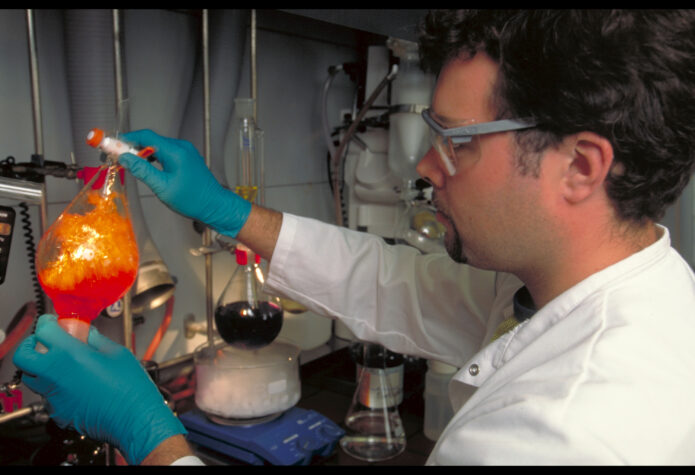Fuel for debate

When hundreds of politicians and decision-makers gather in Copenhagen in December 2009 for the UN Climate Change Conference, many of their cars will be tanked on bioethanol.
Denmark’s enzyme technology company, Novozymes, has provided the enzymes needed to produce the waste-based biofuel, hoping it will provide fuel for the climate debate too.
“People intuitively understand that energy based on biomass, wind and solar power is good for the environment. The challenge is to make people realise that these alternatives are economically feasible in the very near future” explains Camilla Kinch Jensen, Head of Investor Relations at Novozymes, from her office at the headquarters in Copenhagen.
“We want the public and the politicians to understand that it is possible for cars to run on biofuelmade from waste. It is not just a dream. It will not take 30 years to get the technological breakthrough, it is happening now,” Ms Jensen adds enthusiastically.
Big business
In June 2009, NIB and Novozymes signed a loan agreement, totalling EUR 30 million, to finance research and development (R&D) in enzyme technology for biofuel production relying on waste and residues from crops, known as biomass.
The NIB financing will be used to ensure that the bioethanol campaign being carried out during the climate conference will not just remain a PR stunt. The aim of the R&D project is to produce enzymes that can convert biomass into bioethanol in an affordable manner and to reach a broad market. Today the production process is very expensive.
“The goal of this research is to make bioethanol production based on biomass a big industry. To make it commercially viable,” Ms Jensen says, adding that the NIB loan will help in the final push towards this goal. Novozymes plans to have the technology for making bioethanol based on biomass commercially relevant by 2010.
Bioethanol based on biomass is a very environmentally friendly biofuel. Not only are enzymes needed for the conversion of biomass, but with the use of enzymes, the conversion process can also constantly become more and more energy and resource efficient. Biofuel based on waste is able to reduce carbon dioxide emissions by as much as 90% compared to fossil fuels.
“It is important to remember during the current debate surrounding bioethanol, on soaring food prices and energy crops, that in order to reduce the carbon footprint of global transportation we should turn to bioethanol. It is one of the few alternatives to oil today and will continue to be for the next years. Further into the future, however, the world will need a lot of different technologies to accommodate upcoming needs and reduce the use of oil,” says Ms Jensen.
More for less
Novozymes invests 14% of its turnover into R&D, a high percentage compared to chemical companies and other enzyme producers.
“Innovation is the core of our business and is the key to our lead position. Our competitors are both enzyme and chemical producers,” she says and cites an example from everyday life: “The public can spare the environment and save money by washing on lower temperatures. Enzymes work well at lower temperatures, unlike most chemicals. To get the same washing results at lower temperatures, enzymes in the detergents are simply needed.”
According to Ms Jensen, the huge potential of the future bioeconomy could fall victim to the current economic crisis, unless governments and financial institutions act to support the development of biotechnology solutions more vigorously, particularly in the fields of agriculture and energy.
“In order to address global climate and resource problems, biotechnology in agriculture and industry should be supported and not decreased due to economic crisis or a belief that the climate crisis is coming in the remote future. Governments need to trigger research in this field and channel the investment financing through institutions like NIB,” Jensen concludes, with a clear challenge to the delegates attending the upcoming climate conference.
